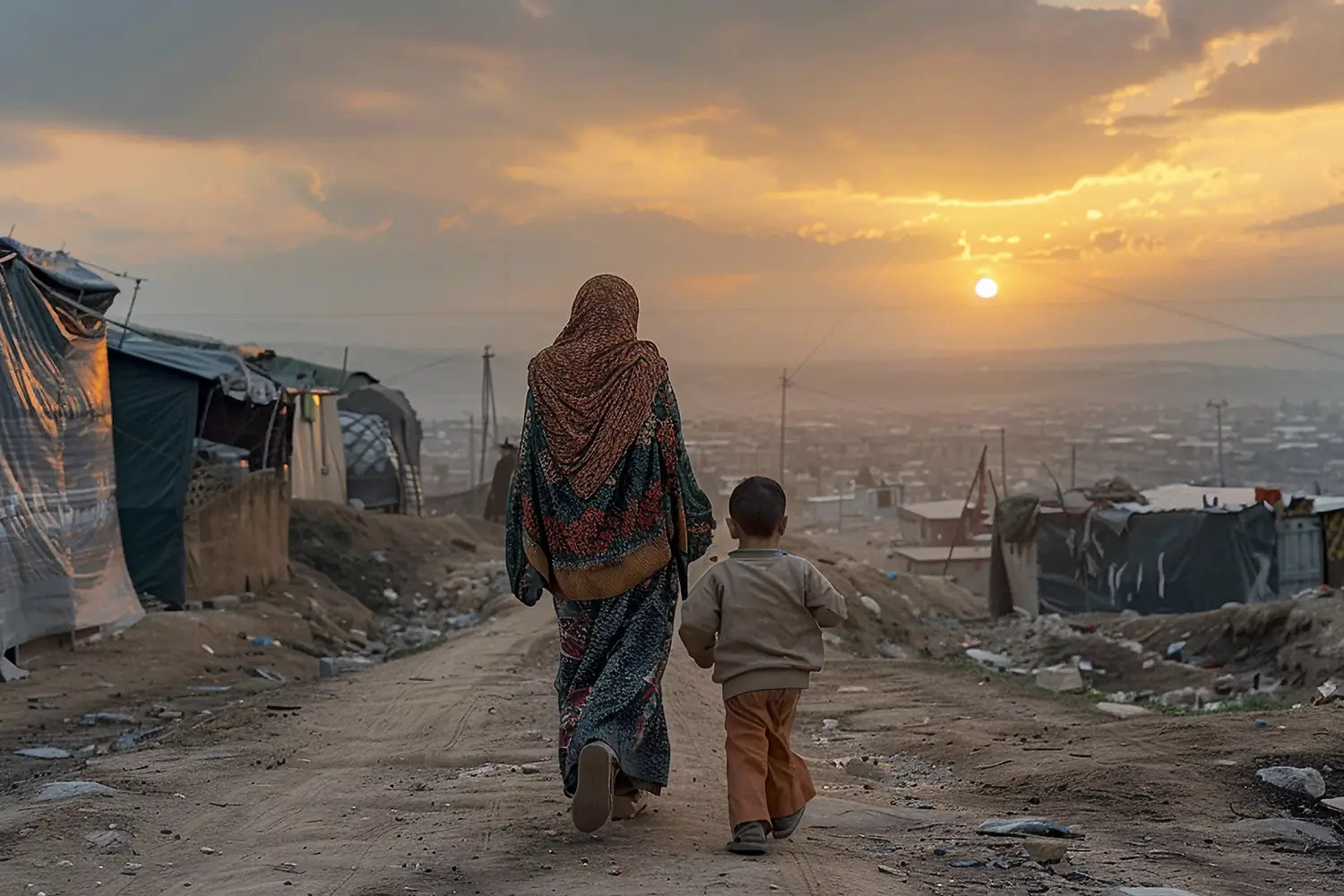Good afternoon, ladies and gentlemen, distinguished colleagues, and honored guests.
The events of August 2021 in Afghanistan were a turning point in global security and human rights. The Taliban’s swift and unexpected return to power was not merely a political event contained within that nation’s borders; it was the start of a profound human rights crisis that has ignited a significant and escalating transnational threat to its South Asian neighbors and, indeed, to the world. The establishment of this oppressive regime in Kabul has created an ideological blueprint for extremism, exacerbated a severe humanitarian crisis, and is actively undermining democratic norms across the region.
Today, I want to delve deeper into these three interconnected threats. We must understand that the internal tragedy of Afghanistan is now a regional human rights imperative, demanding our collective attention and a coherent, principled response.
The most dangerous consequence of the Taliban’s rule is the ideological blueprint it provides for extremist groups. Their victory has served as a powerful and dangerous model—a symbol that a hardline Islamist movement can, through perseverance and violence, defeat a global superpower and establish a government. This has given a significant ideological and operational boost to groups with similar goals, most notably the Tehrik-i-Taliban Pakistan, or TTP. The TTP is not just a loose collection of militants; it is an organized, ideologically aligned group that shares deep ties with the Afghan Taliban. For years, the TTP operated with a singular goal: to overthrow the Pakistani state and impose its own vision of Islamic law. Since the Taliban takeover, the TTP has viewed their success as a direct validation of its own efforts. This has translated into a sharp and concerning increase in cross-border terrorist attacks, a breakdown of a fragile peace, and a tragic spike in the loss of innocent lives. The Taliban’s victory has effectively created a sanctuary for the TTP, allowing them to operate with a degree of impunity, recruiting, training, and launching attacks from within Afghan territory. This emboldenment poses a direct and tangible threat to the fundamental right to life and security for citizens in neighboring countries.
Second, the crisis in Afghanistan poses a significant humanitarian and security challenge that directly burdens its neighbors. The Taliban’s ascendance has created a sanctuary not just for the TTP, but for a host of regional militant groups, allowing armed factions to operate with impunity and destabilize border regions. This, in turn, has fueled a severe and multifaceted humanitarian crisis. Pakistan, which has hosted millions of Afghan refugees for decades, has recently initiated a plan for their forced return. This policy has been widely condemned by human rights organizations because it exposes vulnerable Afghans—especially women, girls, and former officials—to persecution and severe human rights violations upon their return to Taliban-controlled territory. The situation is dire. According to recent reports, over a million Afghans have been forcibly expelled from Pakistan and Iran, arriving at border crossings with nothing, facing immense heat, and uncertain futures. This mass movement of people, often returning to a country where a significant portion of the population already requires humanitarian aid for basic survival, creates a profound strain on an already fragile system and a severe risk of further human rights abuses.
Third, the Taliban’s success represents a significant and insidious ideological threat to the project of democracy in South Asia. Their establishment of an autocratic, one-party state provides a dangerous anti-democratic blueprint for extremist movements. This threat is compounded by the international community’s perceived failure to prevent the Taliban’s rapid takeover and the subsequent collapse of the Afghan government. When powerful nations engage diplomatically and economically with a regime that has such an egregious human rights record—a regime that has institutionalized oppression and terror as state policy—it sends a troubling message: that adherence to democratic norms and respect for human rights are not prerequisites for international acceptance. This erodes the post-World War II international order, where democracy and human rights were supposed to be the foundational pillars of global governance. If the international community normalizes the Taliban through aid or diplomatic engagement without accountability, it risks a dangerous domino effect—more failed states, more terrorism, and a retreat from the global promotion of democratic values.
However, the world’s great powers must understand that a policy of isolationism will not solve this crisis; it will only allow the problem to fester and grow worse. By turning away from Afghanistan, these nations risk a deeper humanitarian catastrophe and the further entrenchment of extremism, which will inevitably spill over borders and threaten global security. Therefore, it is imperative that both the regional powers of South Asia and the global powers play a proactive and coordinated role in order to pressure the Taliban and promote the political and social freedoms that the Afghan people so desperately deserve.
And within this broader threat, one aspect stands out as particularly egregious and fundamentally destabilizing: the Taliban’s institutionalization of gender apartheid. This is not a strong term used lightly; it is a term that has been adopted by United Nations experts and human rights organizations to describe the systematic persecution and total subjugation of women and girls. Under the Taliban’s rule, edicts have been issued to ban girls from secondary and university education, prohibit women from most work sectors, and severely curtail their freedom of movement and speech. These are not isolated incidents of discrimination; they are a comprehensive and intentional campaign to erase women from public life entirely. This system of gender-based persecution acts as a dangerous model that destabilizes the entire region. It sends a message to other extremist groups that such brutal repression is not only possible but is a viable form of governance. The Taliban’s actions directly undermine the efforts of nations like India and Bangladesh to promote women’s empowerment and gender equality, as the regime’s policies act as a grim, ever-present symbol of regression.
In closing, the Taliban’s re-establishment of control represents a profound human rights reversal that extends far beyond Afghanistan’s borders. The security threat posed by an emboldened TTP, the humanitarian crisis created by refugee flows and forced returns, the ideological ripple effects that threaten social cohesion in nations across the region, and, perhaps most disturbingly, the institutionalized gender apartheid—all of these demonstrate that the internal tragedy of Afghanistan is now a regional human rights imperative. Addressing this human rights crisis is essential not only for the Afghan people but also for the peace and stability of the entire South Asian region.
Thank you.
(This speech was made on 11/09/2025 at the conference, Influence of Regime Change on Human Rights in Afghanistan, organized by the PRISA, Brunel University London’s South Asia Research Group and the Farsi Action Foundation).



